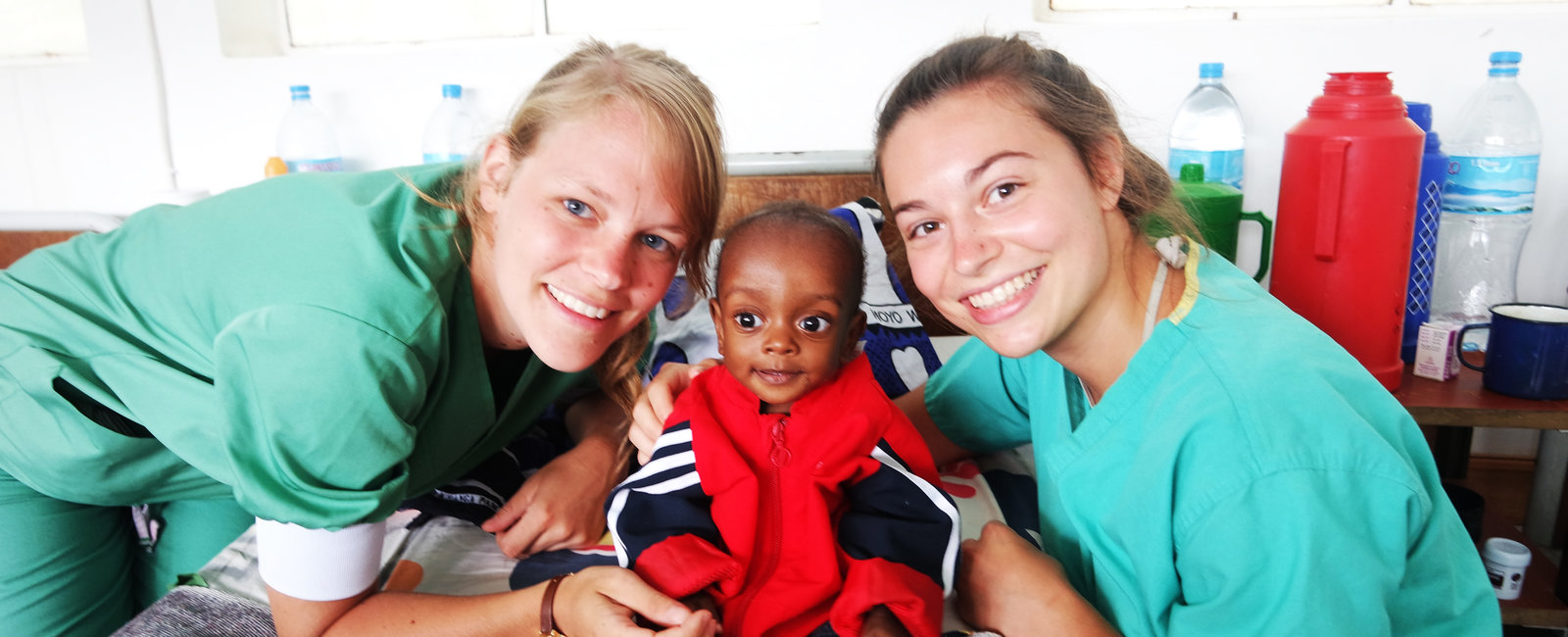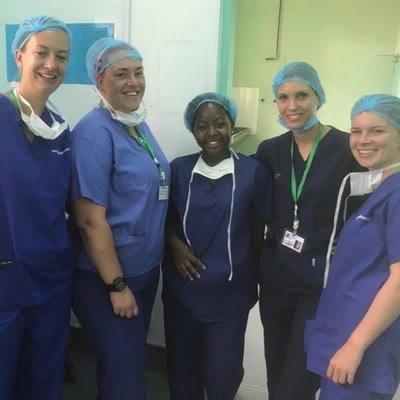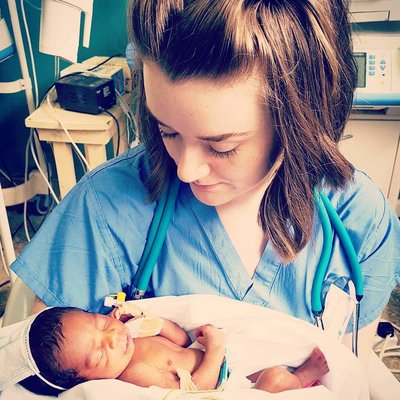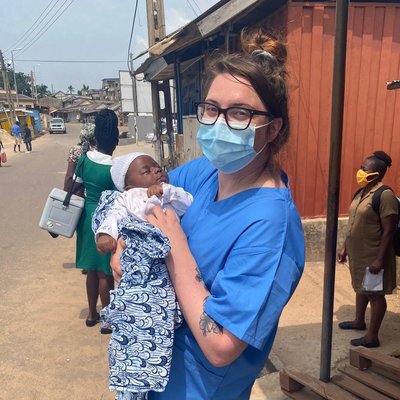So, you’re here because want to go nursing abroad. Or maybe you’re still playing with the idea, but on the fence about taking the plunge. Or maybe it’s none of those things and you landed here by accident. Whatever your purpose, this post focuses on the benefits nursing overseas and why you should stop thinking about it as a luxury and start thinking of it as a necessity.
1. It looks amazing on your resume
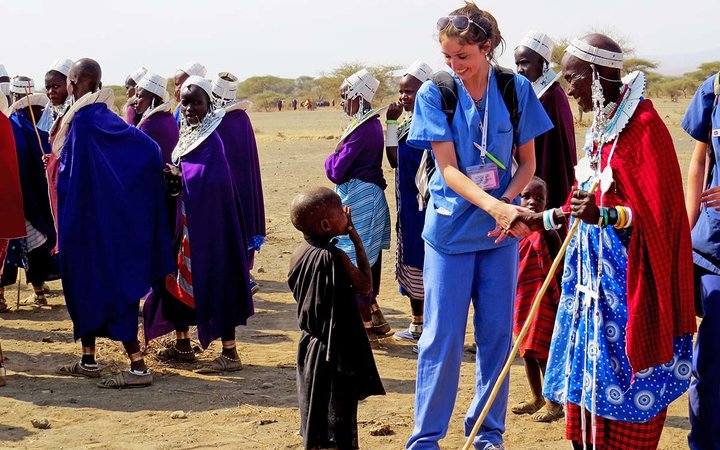
Nothing says ‘employability’ like a resume full of nursing experience overseas. When a potential employer is reading over an application, your time abroad will jump off the page. They’ll be thinking ‘resourceful, resilient, determined’.
In a 2013 study, it was discovered that “[...] graduates who studied abroad as part of their degree are 24 percentage points more likely to find employment 3 years following graduation relative to their non-mobile peers.” (Di Pietro 2013).
That’s a stat worth remembering.
One of our former travellers who now works with a major global health charity in Southern Africa had this to say:
“An internship abroad stands out on your resume as a badge of durability, resourcefulness, and cross-cultural aptitude. It says you’ve seen, and experienced things unknowable in places like the US. It says you’ve solved problems and debated ethics that are simply taken for granted at home. It says that you've earned something few others have. Work the World prepare you in innumerable ways to be a better clinician and a better citizen of our planet - employers know this.” - John Hansen Brevetti
Read more from John about how nursing abroad helped him kickstart his clinical career by clicking here.
We also asked Troy Peden, the founder and CEO of a successful overseas programme directory, what he thought:
"Working, interning or volunteering abroad are great for the resume and can often provide practical experiences that may not be available at home.
In the field of medicine and health sciences working abroad may offer the traveler public health topics that are not often issues at home, the opportunity to develop intercultural communication skills and dealing with new and unique challenges.
Future employers can see that you are flexible, motivated and dedicated to a greater good.
The biggest value however is the personal transformation that most travellers experience, the connection to locals, the relationship to the culture and the people that lasts a lifetime and the realization of what you are capable of and what you want your direction to be.”
2. Make lifelong friends (and international contacts)
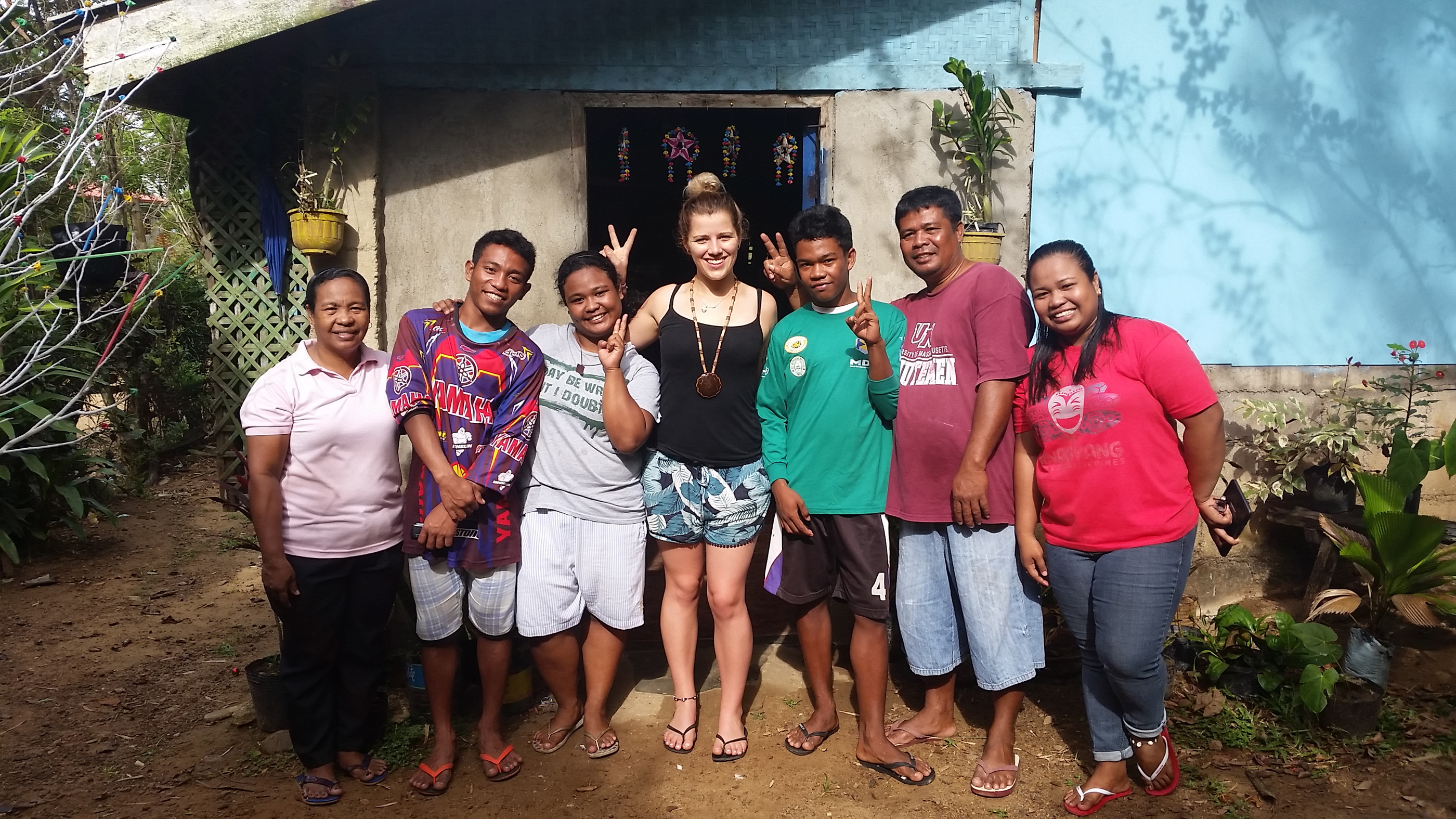
You’re going to meet a whole cast of characters if you’ve got the courage to try nursing abroad – from the people you’ll live with to the staff in the hospitals you’ll work in.
The benefits are twofold:
- Sharing an experience like this with other, similarly minded people from all over the world forms a special kind of bond. The memories you’ll make, and the friendships that created them, will last a lifetime
- You’ll make invaluable international contacts — from your nursing peers to hospital directors
Madison, a nurse who has travelled with us, adds this:
“My advice for future students is to sign up and go! I was hesitant at first because I would be traveling alone but it turned out to be one of the best things. I met so many people from all over the world and make lifelong friendships.” - Madison Molotky
3. See through a new lens
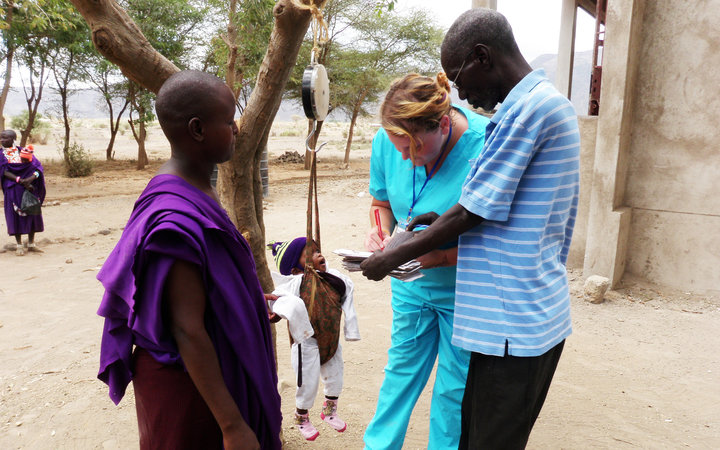
Seeing the way other countries provide care will influence the way you view your own practices. You’ll become grateful for what you have back home, and develop a new empathy for cultures that have considerably less resources. When you get to work in the hospitals and embrace your host culture’s values – especially on a clinical level – you’ll begin to evaluate yourself and develop as a result.
"I honestly don’t feel I can put how much I have actually learned into words, but I would strongly encourage everyone to experience this if they can. I’m going home a different person.” - Arwen Graham – Kandy, Sri Lanka
4. Learn a language

[Our Nepalese language teacher talks through disease translations]
Practicing a second, third, or even fourth language keeps your brain healthy. It’s useful in everyday life, it’s attractive to employers, and let’s be honest — it’s just plain impressive.
Making the effort to grasp the language will allow you to engage with patients from the country you’re working in on a much more personal level. It’ll also earn you the respect of local healthcare professionals and enhance your experience. Couple that with the experience you’ll gain in the local healthcare system and you’ll be an unstoppable force [note that we provide weekly language lessons in our houses geared towards preparing you for your clinical experience].
But don’t just take our word for it:
“Learning Swahili really did help; the doctors and nurses really appreciate it when you make the effort to speak their language. Ask questions and be active in all that is going on around you.” - Samantha Scoggin – Dar es Salaam, Tanzania
5. JOIN the global community.
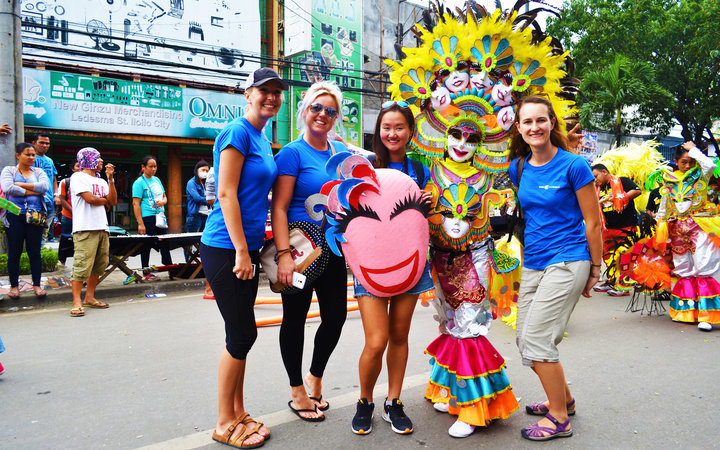
Staying in a fixed location your entire life is becoming a thing of the past. With international travel cheaper than ever (relatively speaking), the world seems smaller all the time. Country borders are increasingly less relevant, and people are starting to think of themselves as World Citizens. Nursing abroad could be your first step toward joining this emerging global community.
Alex, one of our travellers, says that you’ll interact with people from around the globe and from all walks of life:
“One of the major perks of living in a house with other healthcare students from around the world is that the learning did not stop once you left the hospital. Coming back to the house and discussing the cases that you had seen that day was so useful; it offered a great chance to ask students from other disciplines in other parts of the world questions and compare how care priorities varied between our respective countries. It also offered a great opportunity to gain a greater understanding of the different roles within the healthcare team.” - Alex Warriner – Iloilo, Philippines
6. Grow as a person
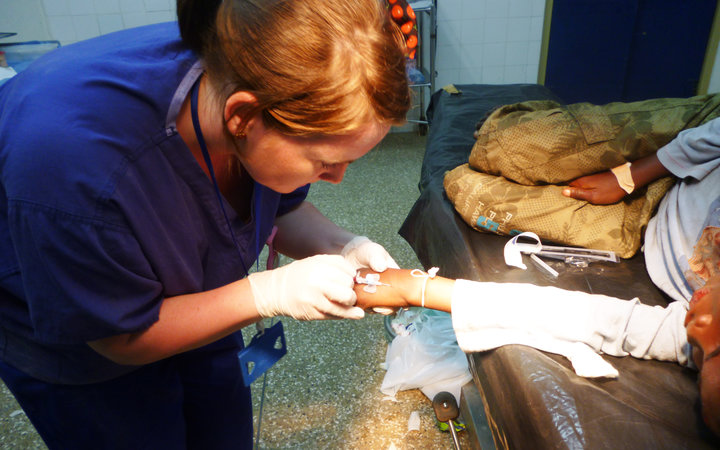
If you choose to go nursing abroad, you’re going to learn. You’re going to learn a lot, and you’re going to learn quickly, which is great. If you’re spending time in a low-resource setting, you’ll pick up resilience from local staff who experience hardship as the norm. Your self-confidence will be continually boosted by challenging experiences that come with the territory. You’ll get much better at communicating, as you’ll be working in an environment where the majority of patients won’t speak English. The list goes on.
Madeline travelled to Dar es Salaam recently and she had this to say:
“An experience like this changes you. It changes the way you see yourself, it changes the way you see healthcare and it especially changes you as a nurse. As challenging as it can be, I am now able to adapt as a nurse to my environment and essentially, provide better care for my patients. I was so humbled by the experience.” - Madeline Nastaly – Dar es Salaam, Tanzania
7. See the world

There's no sense in heading to a new country without giving yourself time to explore it. Whether it’s trekking through the Himalayas in Nepal, exploring the Maasai markets in Tanzania, or whitewater rafting through river gorges in Indonesia, nursing abroad offers endless opportunities for adventure. A lot of people dedicate a few weeks before or after their placement to go travelling.
8. Learn what ‘nursing’ means around the world

One of the most crucial takeaways from an internship abroad is discovering what the title of ‘nurse’ means in a global context. After all, the methods, practices, beliefs, and values of nurses differ depending on where in the world you happen to be.
Nursing abroad gives you the rare opportunity to share the skills and knowledge from your country and culture with equally dedicated people abroad. Better still, it works both ways; if you keep an open mind, you’ll pick up techniques that will help you improve on a professional level.
If you’re a student the effect is even more powerful; working in a teaching hospital will put you with fellow nursing students. You can talk about the differences in how you’re being taught and what you’re learning.
Ashleigh experienced this exchange firsthand in The Philippines where many nurses plan to come and study or work in the UK:
“I have a new appreciation of the things that we have back home. I was also blown away by the creativity of local nurses who provided services and supplies to patients by using things resourcefully (e.g. making hand splints from cardboard boxes and paper, and making neonatal oxygen masks using dextrose bottles cut to size). It also hit home how wasteful we can be back home. - Ashleigh Buncombe Paul – Iloilo, Philippines
You deserve to seize the opportunity to try nursing overseas. Why not put yourself ahead of the pack and steer your career as a nurse towards something extra special.
You’re ready to take the first step. Click this link to read more about nursing abroad, or put your details in the form below to find out more.
